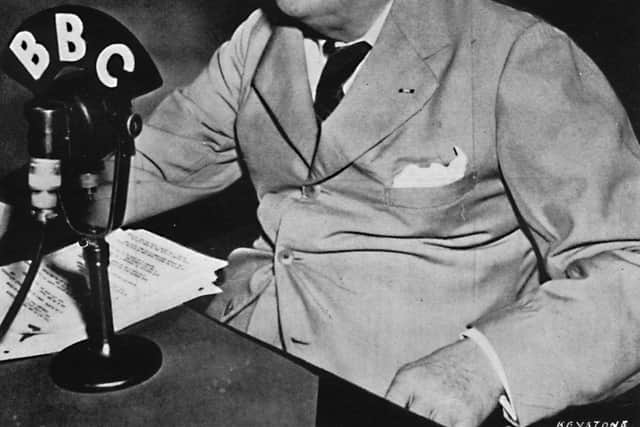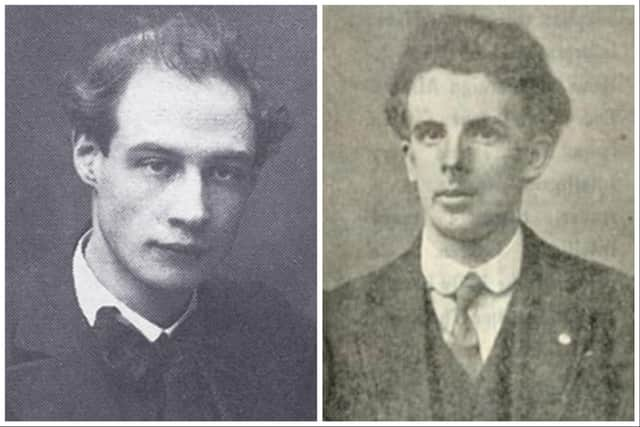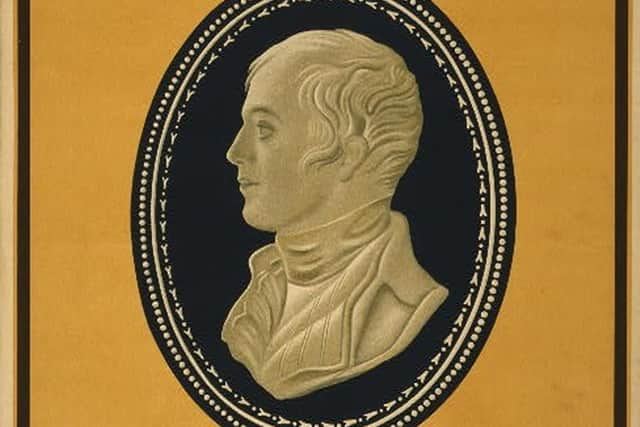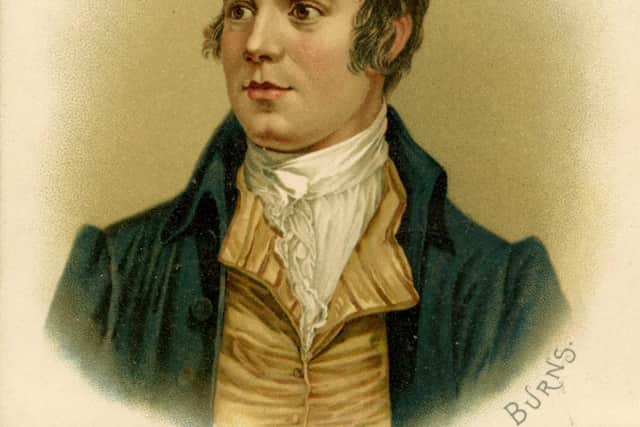Burns Night: Bard used as 'propaganda' by Ministry of Information and BBC during the Second World War
The works of Robert Burns were used as “propaganda” by the Ministry of Information with the support of the BBC at the tail end of the Second World War to spread the bard’s words on humanity, equality and democracy, it has emerged.
Research by Dr Paul Malgrati, a Burns scholar, found the Ministry of Information approached the Burns Federation to fund a series of Burns Suppers in 1943 and 1944 to harness the popularity of poet and use his works to disseminate key messages as the fight against Nazism entered its final stages.
Advertisement
Hide AdAdvertisement
Hide AdThe British state specifically sought to raise morale and align Burns to the creation of the welfare state following the Beveridge Report and the aims of Atlantic Charter, which was drafted by Prime Minister Winston Churchill and President Franklin Roosevelt in 1941 to set out their vision of a post-war world, which included commitments to labour, economic and welfare standards.


As a result, more than 35,000 members of the public attended 18 suppers, from Dumfries to Dennistoun, Rothesay, Edinburgh and Kirkcaldy, on Sunday, January 24, 1943 with Burns Federation records showing that the BBC “gave its support” by arranging an “appropriate broadcast” across the UK the following day.
Dr Malgrati, formerly of the Centre of Burns Studies at the University of Glasgow, has published his findings in his book, Robert Burns and Scottish Cultural Politics, which is published by Edinburgh University Press.
He said: “The book is looking mostly at the past 150 years and is a history of Scottish politics, if you like, but through the lens of Burns and looking at how parties have engaged with Burns and have claimed, and are still trying to claim, Burns for themselves.


“The time of the Churchill war government, a coalition government, is one of the turning points. It is really when you clearly have an attempt by the British state to use Burns in 1944 and also in January 1943, these two pivotal years of the war.
Dr Malgrati said the campaign followed the use of Burns during World War One when he appeared on a recruitment poster along with a verse from his poem “I’ll Go and Be a Sodger”.
But by the Second World War, a “very different take on Burns” was being used.


Dr Malgrati, a lecturer in literature at the Institute for Northern Studies at the University of the Highlands and Islands said: "It is not so much nationalism and carrying arms to kill the Germans – it is more a Man’s a Man for a’ That and Man Was Made to Mourn, which has the line ‘man’s inhumanity to man’.
Advertisement
Hide AdAdvertisement
Hide Ad"It was to give people hope that after the war, that once the Nazis are defeated life will be better, we will have social rights and we will have the welfare state for the first time.
"It is the beginning of creating a fairer, more socially kind and equal world after the war. As part of this effort of keeping people’s spirits up during the war, it is interesting to see how they really tried to tap into Burns at this time.”
The changing approach to using Burns for propaganda purposes during the world wars came amid a changing political shift, both nationally and within the traditionally centre-right Burns Federation, Dr Malgrati said.


He said: “In terms of cultural forces and institutions in Scotland, the federation was actually quite influential. You had Burns club in every village, just about and you had that big link with Canada and America.
"That was a big organisation to get on board and it was a big organisation to take control of because until then the federation was more conservative, or centre right let’s say. This was a time when Labour was gaining a lot of influence on Scotland in general and on the Burns Federation in particular.”
By the time the Ministry of Information approached the Burns Federation, two influential Glasgow politicians were on the cusp of becoming its leaders.
John S Clarke and Patrick Dollan had been Red Clydesiders who left the Independent Labour Party in 1932 to help set up the Scottish Socialist Party. Both were old friends of the Labour politician Thomas Johnston, the wartime Secretary of State for Scotland in Churchill’s coalition cabinet.
Dollan was later elected as Glasgow’s Lord Provost and was knighted for his support to war recruitment in 1941. Clarke, a vet and lion tamer who travelled to Russia in 1920 to cure Lenin’s dog of an ailment and delivered lectures on Russia to several Burns Clubs, had served as Labour MP for Maryhill and took a seat at the Glasgow Corporation. Both were among key speakers at the Burns Suppers arranged for the Ministry of Information.
Advertisement
Hide AdAdvertisement
Hide AdWhile a recording of the Burns Supper transmitted by the BBC in 1943 no longer exists, Dr Malgrati said the writings of Dollan and Clarke around that time contained similar messages pursued by the British state.
Dollan’s address to the 1944 Burns Federation conference stated that the Atlantic Charter had its basis in Burns’s poetry.
The account of the address in the Burns Chronicle, said: "The time was most propitious for broadcasting the philosophic principles of Robert Burns, who stressed the fact that there was no need for insecurity for the young who were able-bodied or for the old who were no longer able to help themselves. He wanted that security to be established on a basis of independence. For the first time in the history, of mankind :the two great English-speaking nations, Great Britain and America, were pledged to carry out the main principles of the philosophy of Robert Burns.”
That year, Dolan also wrote that Burns was a “greater advocate of peace and social security than Roosevelt, Churchill, Beveridge or any of the modern champions will ever be”.
Comments
Want to join the conversation? Please or to comment on this article.